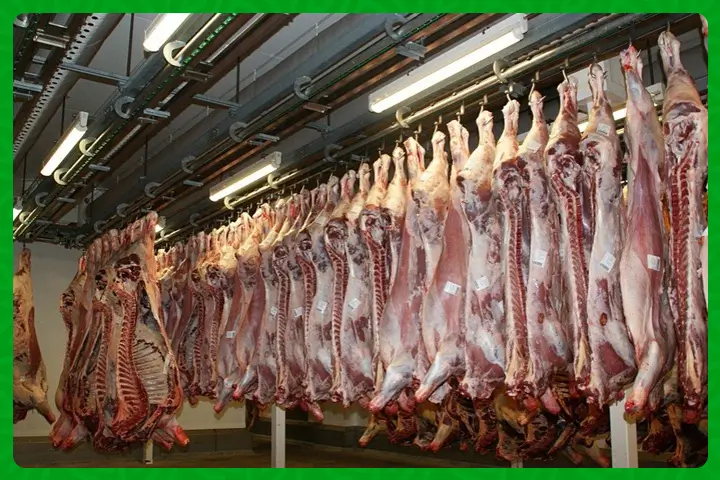
South Africa’s red meat industry has been dealt a heavy blow. In a move that takes immediate effect, Chinese authorities have halted the import of beef and all products from cloven-hoofed animals in South Africa. The suspension comes in response to confirmed cases of Foot-and-Mouth Disease (FMD) in multiple provinces, putting both farmers and exporters on high alert.
Immediate Impact on Exports and Farmers
China represents the largest export market for South African beef by volume. Overnight, this ban cuts off a vital revenue stream for ranchers who rely on consistent demand and dependable pricing. For many small-scale farmers, the suspension threatens livelihoods. The Red Meat Producers Organisation warns that losses will extend beyond beef to encompass all cloven-hoofed animal products, from lamb to specialty game cuts.
“I have never seen my bank account balance so uncertain,” says Thabo, a farmer near Newcastle, KwaZulu-Natal. “Our cattle were meant to ship out next week. Now we face feeding these animals longer than planned, with no immediate buyer.”
How FMD Spread beyond KwaZulu-Natal
Originally detected in parts of KwaZulu-Natal, the virus has now surfaced in Mpumalanga and Gauteng. Follow-up investigations traced infected livestock sold at an Utrecht, KwaZulu-Natal auction to a farm in Mpumalanga. Despite the absence of visible lesions, testing revealed the virus in nearby holding pens.
A separate cluster emerged when livestock purchased at Heidelberg auctions tested positive at a Gauteng feedlot. The silent nature of early-stage FMD infections means animals can carry and transmit the virus before any signs appear, creating stealthy pathways for spread.
Mandatory Quarantine Rules and Biosecurity Measures
Dr Mpho Maja, Director of Animal Health at the Department of Agriculture, stresses the critical importance of existing regulations. Since October 2022, all incoming animals must undergo a strict 28-day separation from established herds. This quarantine provides a buffer to identify and isolate infections before they take hold.
Farmers are urged to:
- Hold newly purchased animals in dedicated facilities away from main herds
- Complete all veterinary inspections before integrating livestock
- Keep comprehensive records of animal movements and auction sources
Failure to comply with Section 11 of the Animal Diseases Act not only endangers neighbouring farms but also carries legal repercussions.
Government Steps up Disease Control Operations
Agriculture Minister John Steenhuisen has placed the Deputy Director-General’s office in charge of intensified control measures. This task force will coordinate regular meetings with State Veterinary Services, auction house representatives and livestock industry stakeholders. Their goals include:
- Enhancing real-time disease monitoring systems
- Tracking livestock movements with digital tagging
- Enforcing stricter auction procedures and on-site health checks
Mobile inspection teams are visiting farms in affected regions, conducting diagnostic sampling and advising on immediate response actions.
Economic Toll and Industry Concerns
The ripple effects of China’s ban extend beyond farmers to feed producers, transporters and meat processors. With product stockpiles swelling and export revenue halted, many businesses face cash-flow crises.
“We are staring down the barrel of unsold product and mounting storage costs,” explains Lerato, operations manager at a major processing plant in Gauteng. “Without exports, our cold stores will overflow within weeks.”
The RPO has called on government to negotiate with Chinese regulators and provide emergency support to affected producers. Subsidies for feed and storage plus accelerated veterinary services are among the relief measures under consideration.
What Farmers Can Do Now
While national and international negotiations unfold, on-farm biosecurity is the first line of defence. The Agriculture Department advises farmers to:
- Restrict all nonessential animal transport until further notice
- Verify the health status of any animals brought in from KwaZulu-Natal, Limpopo, Mpumalanga or Eastern Cape
- Deep-clean transport vehicles, trailers and auction cages after every use
- Report any unusual symptoms such as excessive salivation, lameness or lesions, to local veterinary authorities without delay
By acting swiftly and decisively, farmers not only protect their own herds but also help restore confidence in South Africa’s red meat exports.
Looking Ahead: Restoring Market Access
Reopening the Chinese market will hinge on rigorous containment of FMD and transparent reporting. International partners will expect proof that outbreaks are confined and that no new cases emerge over time. The 28-day quarantine rule, though challenging, demonstrates South Africa’s commitment to high animal health standards.
Efforts to fast-track approved vaccines and bolster cross-border surveillance are already underway. In the meantime, the industry must pivot to alternative markets and value-add processes such as premium local cuts and on-farm experiences to mitigate short-term losses.
China’s suspension of meat imports is a wake-up call for South Africa’s red meat sector. It highlights vulnerabilities in biosecurity and the critical need for stringent quarantine enforcement. By following established protocols, embracing new monitoring technologies and collaborating closely with authorities, farmers can contain the outbreak and lay the groundwork for a strong, disease-free return to global markets.
For every farmer and stakeholder, the message is clear: act now, stay vigilant and together we can weather this storm and emerge stronger.
Stay updated with the latest farming tips and agriculture industry news from Africa by subscribing to our newsletter. Don’t miss out on valuable insights and updates. Follow us on Twitter, LinkedIn, and Facebook to join our farming community and stay connected with us.


















